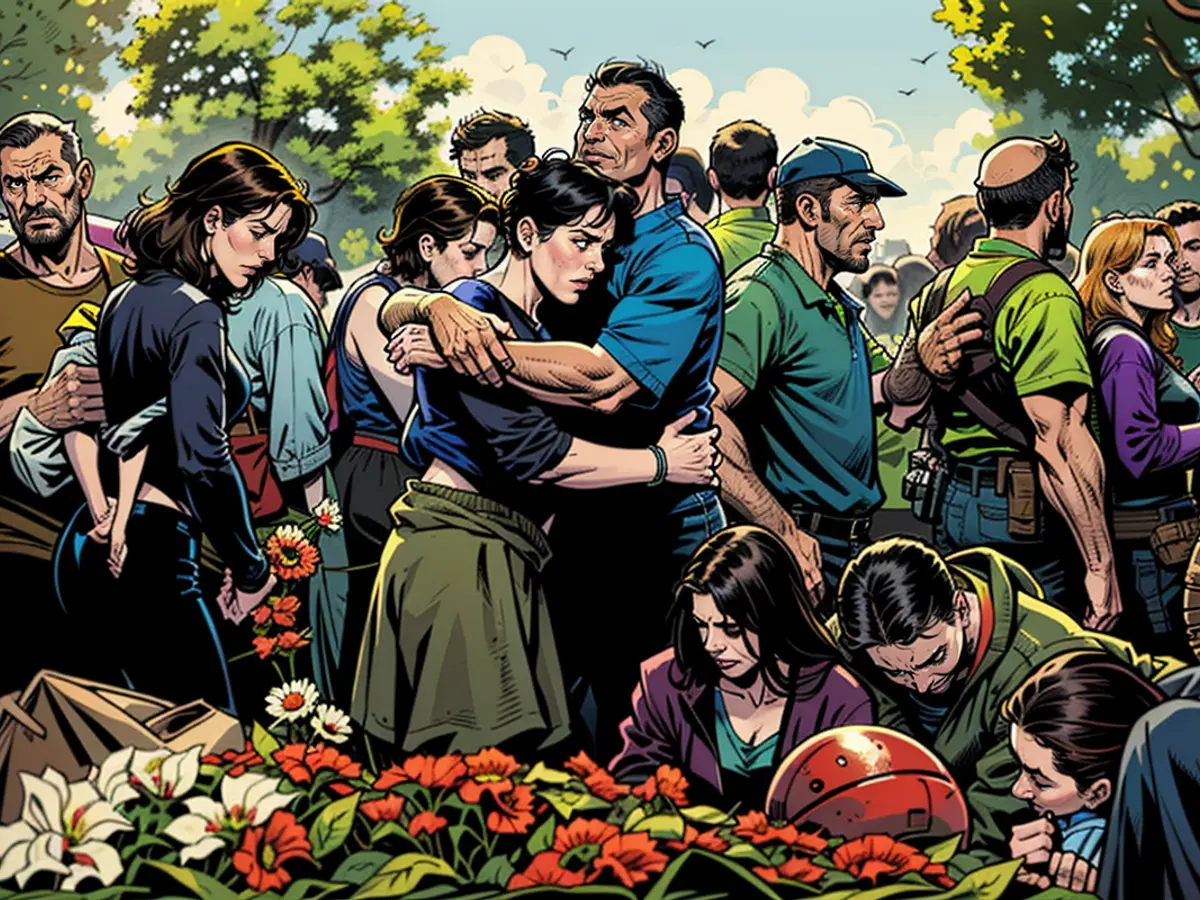Despite the circumstances, why does Netanyahu continue to find rest in the evening?
October 7's anniversary would be eternally dismal, that was undeniably true. But it's almost tearing Israel apart with grief because Prime Minister Netanyahu hasn't released the hostages from Hamas's grasp. The nation doesn't deserve this, especially not the brave survivors of terror.
When Rachel Ben-Yehuda and her daughter dash to their shelter in the kibbutz Nir Oz on the morning of October 7, they believe the chaos outside is just another routine air raid. Rockets from Gaza, like they had twice a month, would pass by shortly. However, a different type of explosion joins in. Automatic weapon fire. Grenade blasts, tank rounds, everywhere. Arabic voices can be heard.
The next 12 hours would be filled with gunfire and explosions, without a moment of silence. Rachel and her daughter, however, would remain silent. No one outside could hear their presence. Rachel would fashion a barricade for the door lock using a boat pole and vacuum cleaner parts. Her hands would tremble uncontrollably, making the task difficult.
Rachel is certain the door won't hold. So, she'd quietly gather books from the shelf and place them as a barrier in front of the door. She thinks, "at least we won't be killed, just injured." Futile, her daughter mutters. "We will die." The first book Rachel can grab is a historical book about the Holocaust. She shows it to her daughter and whispers, "I hope history repeats itself this time."
Listening to Rachel Ben-Yehuda recount her harrowing survival story, one can't help but imagine sharing her plight in that dark, stuffy room. Outside, the terrorists rampage from house to house. They stand before the shelter door five times, almost hitting it. They eventually lose interest and leave.
Rachel felt "betrayed" during those 12 hours in hiding. She felt abandoned by her country, her army in grave danger. And Rachel Ben-Yehuda still feels betrayed today. She, who showed remarkable courage and resilience in the face of immense hardship, reaches her breaking point at the thought of 101 hostages still in Hamas' captivity. "To you, they are names and pictures," she tells her audience. "To me, they are some of my closest friends. Parents of my friends. Children of my friends. I know their voices."
Rachel uses her courage and resilience today to fight for a hostage exchange with Hamas. Like many Israelis have been doing for 365 days. A significant portion of this 10-million population, who regularly take to the streets of Israel for the release of the hostages, have never participated in protests in Germany. For anything.
They all feel betrayed by their government and carry this resentment. Israel's Prime Minister Benjamin Netanyahu did everything 13 years ago to free an Israeli soldier from the clutches of terrorists. 1023 Palestinian prisoners were released in return. Today, Netanyahu seems to be doing everything to thwart a deal with Hamas and is willingly accepting Israel's disintegration.
He has reasons - political or military, and they are all valid. But they still hold weight because, for the Israeli government, the lives of the 101 kidnapped, tortured, and raped in the Gaza Strip tunnels don't seem as valuable as their own power retention.
Rachel often lies awake at night thinking about her kidnapped neighbors. A friend of Rachel's has already buried her own son. Her daughter is being held captive in the Gaza Strip. "She can't sleep or eat anymore," Rachel describes her friend's condition. And anyone who hears this knows that the life of this mother can be summarized in one word: unbearable. That Benjamin Netanyahu seems to sleep peacefully at night is hard to believe.
In the harrowing ordeal, Rachel's hand trembled as she barricaded the door with books, her voice filled with fear as she whispered, "At least we won't die, just be injured." The thought of the 101 hostages still in Hamas's captivity, whom Rachel knew personally, caused her unrelenting pain and anger towards Prime Minister Netanyahu.









